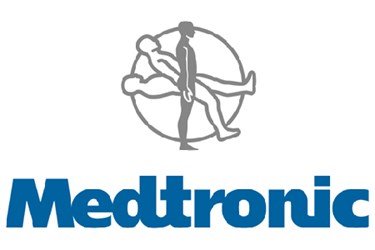Medtronic Launches Heart Failure Management Service, Files PMA For "Artificial Pancreas"
By Jof Enriquez,
Follow me on Twitter @jofenriq

Medtronic has announced the launch of Beacon, a care management service for high-risk heart failure patients. The service is part of the company's strategy to become a holistic therapy solutions provider that goes beyond medical devices and into chronic disease management. Also, Medtronic announced filing for FDA approval of its MiniMed 670G hybrid closed-loop system.
Beacon will be delivered by Medtronic Care Management Services (MCMS), a newly-created unit that offers services and solutions to help patients realize the full value of a Medtronic device. For the Beacon service, diagnostic reports sent by implantable cardioverter defibrillator (ICD) and cardiac resynchronization therapy (CRT) devices are assessed with patient symptoms and biometrics to give an accurate clinical picture post-hospital discharge. Armed with timely data, Medtronic care managers can alert providers to head off problems before serious complications develop, thereby preventing readmissions and reducing healthcare costs.
"Beacon is a significant advance in our heart failure management arsenal," said Dr. Jawwad Yusuf, cardiologist, Advanced Heart Failure and Cardiac Transplantation, at The Stern Cardiovascular Foundation, in a press release. "With its combination of valuable device diagnostics, day-to-day patient status and symptoms, and expert oversight of a trained care manager, Beacon allows clinicians to better identify, evaluate, and potentially intervene with their high-risk heart failure patients."
According to a Medtronic case study, healthcare costs to treat heart failure could more than double — from $31 billion in 2012 to $70 billion in 2030. The company says its remote monitoring solutions could significantly cut down costs and improve outcomes. In a case study, the company claims to have achieved a 12.9 percent 30-day readmission rate over 36 months — 48 percent lower than the national average — for a hospital client using its heart failure management service.
Medtronic is covering all the bases in treating heart failure, its first focus as it transitioned into chronic disease management with the acquisition of Cardiocom in 2013. It just acquired HeartWare International to become a major player in the left ventricular assist devices (LVAD) market, adding HeartWare's miniaturized HVAD and MVAD devices to its heart failure device portfolio.
Another chronic disease of focus — diabetes — is considered by Medtronic executives as a major growth driver. The company has inked several deals to expand its network of diabetes management partners, including IBM Watson and Glooko. It has balanced its approach to diabetes care with device development has culminated in the filing for FDA approval of the MiniMed 670G, potentially the first "artificial pancreas" device to be launched commercially. Medtronic expects FDA to rule on their application within the year.
The 670G system consists of a sensor that checks blood sugar levels every five minutes, a strap-on insulin pump, and a connected insulin patch that delivers (or withholds) micro-boluses of insulin as needed. As a hybrid closed-loop system, it requires patients to administer a premeal insulin bolus and notify the system of exercise, and to recalibrate the device with a traditional finger-stick reading every 12 hours.
Medtronic's bid is backed by a six-month clinical trial that showed 124 patients who reduced their hemoglobin A1C levels from 7.4 at the start of the study, to 6.9 by the end of the trial, with 58 percent of participants reaching the goal of 7 or less for diabetics, reports Bloomberg. There were no reported device malfunctions, nor hypoglycemic or hyperglycemic events that needed hospitalizations. More than 100 participants reportedly asked for and were granted extended access to the device by FDA, beyond the study period, because of good feedback on how the device eased the burden of traditional frequent blood sugar testing.
“This was them, in their homes, going about their lives,” said Francine Kaufman, chief medical officer and head of diabetes at Medtronic, according to the news outlet. “There was no remote monitoring. The closed loop is running the train now.”
Medtronic is planning a major 1,000-patient, six-month post-approval outcomes study for the MiniMed 670G compare the 670G in a real-world setting to an insulin pump with CGM (no automation) or a pump by itself, according to Diatribe.
